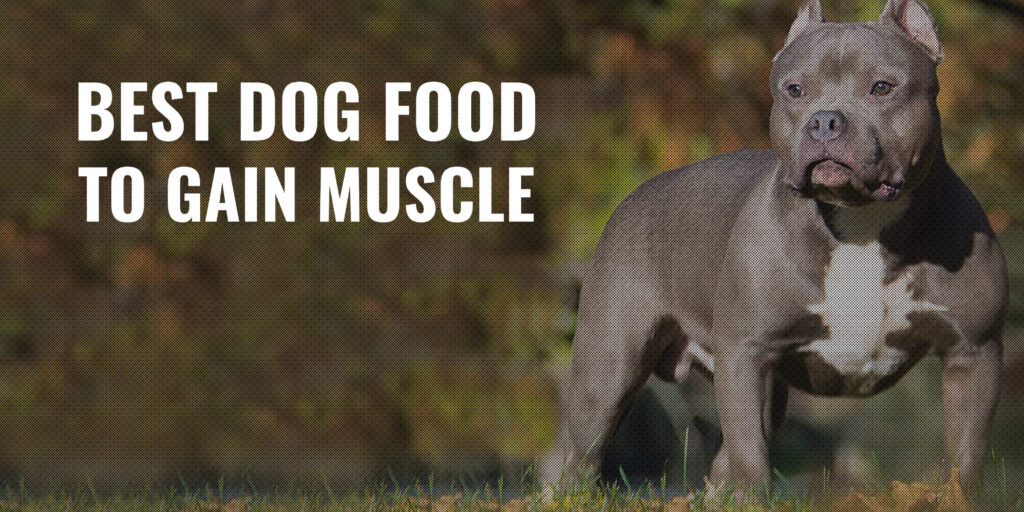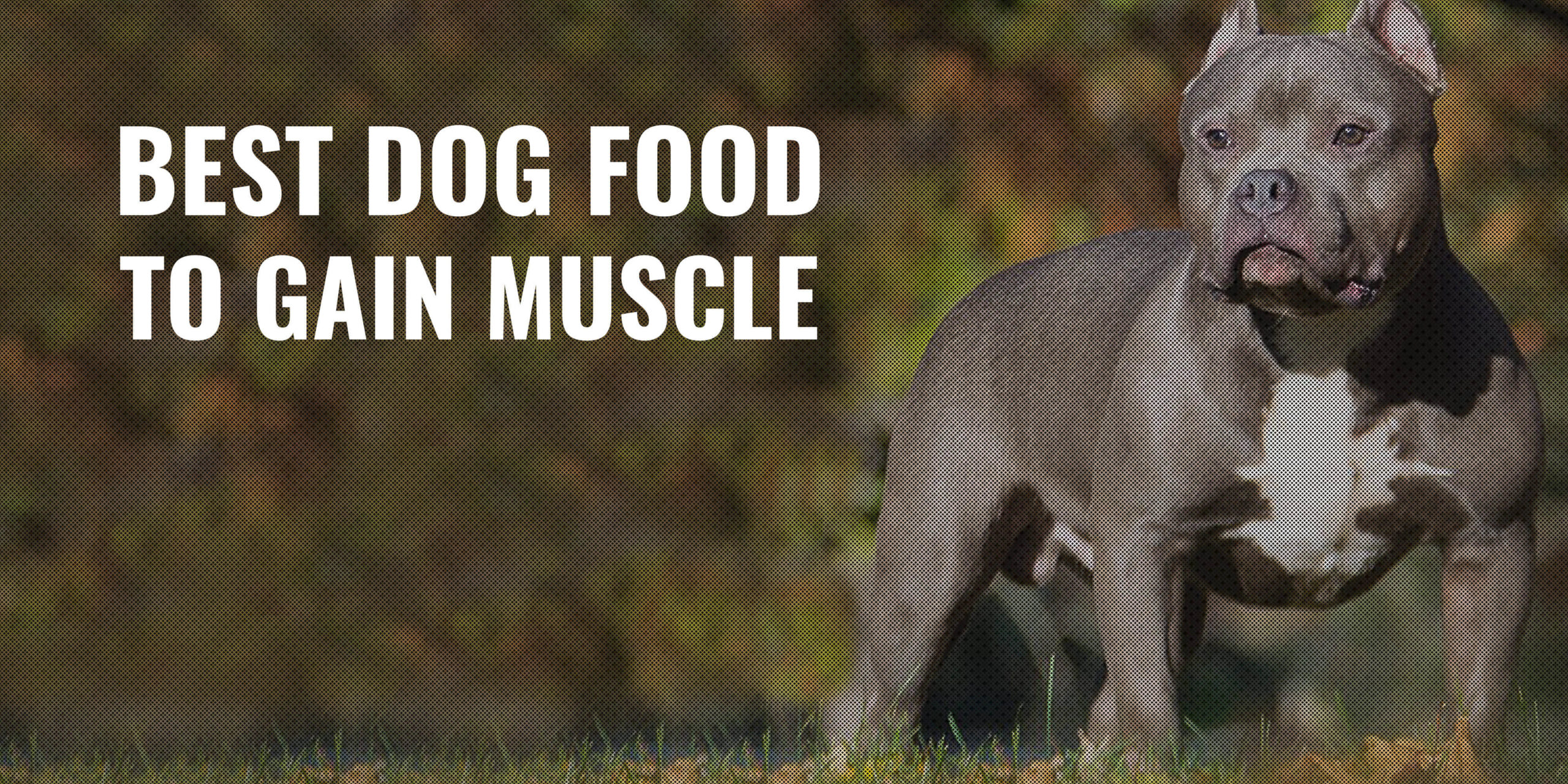Finding The Best Dog Food for Dogs with Muscle Problems 2025 Muscle problems in dogs can significantly impact their mobility, comfort, and overall quality of life. Whether your furry friend is dealing with muscle weakness, strains, or specific conditions like myositis, choosing the right diet plays a crucial role in supporting muscle health and promoting recovery. Here, we explore the best dog food options, ingredients to look for, and essential tips for managing muscle-related issues through nutrition.

Understanding Muscle Problems in Dogs
Muscle problems in dogs can arise from a multitude of causes, which may include factors such as genetic predisposition to certain conditions, physical injuries sustained during play or exercise, the natural aging process that affects muscle health, or nutritional deficiencies that impact overall well-being. The symptoms associated with these muscle issues can be varied and often manifest in common ways. These symptoms may include signs of weakness, difficulty in movement, and noticeable discomfort when the dog engages in physical activity or is at rest.
- Limping or favoring certain limbs
- Decreased activity levels
- Difficulty climbing stairs or jumping
- Visible muscle atrophy (loss of muscle mass)
- Stiffness or pain when touched
Veterinarians typically suggest a mix of treatments—medication, physical therapy, and dietary changes—to address these issues. Your chosen diet should focus on reducing inflammation, supporting muscle repair, and enhancing overall strength.
Key Nutrients for Muscle Health
1. High-Quality Protein
Proteins serve as the essential building blocks for muscles in dogs. When selecting dog food, it’s important to seek out options that contain high-quality animal protein sources. Ideal ingredients include chicken, beef, turkey, fish, or eggs, as these provide the necessary nutrients for optimal health. The presence of protein in the diet is crucial because it aids in the repair of any muscle damage that may occur during physical activity or daily life. Additionally, protein plays a vital role in helping to maintain muscle mass, ensuring that your dog remains strong and active throughout their life. Prioritizing these high-quality protein sources in your dog’s diet will support their overall well-being and fitness.
2. Omega-3 Fatty Acids
Omega-3 fatty acids, which are commonly found in sources such as fish oil, flaxseed, and various types of fish-based dog foods, possess significant anti-inflammatory properties. These beneficial compounds play a crucial role in alleviating muscle pain and reducing stiffness in the body. By incorporating these omega-3 fatty acids into your diet or your pet’s nutrition, you can help enhance overall comfort and mobility, making them an important addition to a health-conscious lifestyle or pet care regimen.
3. Amino Acids
Essential amino acids, which include leucine, isoleucine, and valine—commonly referred to as branched-chain amino acids—play a vital role in the processes of muscle repair and growth. These specific amino acids are not only important for building muscle tissue but also support the recovery and strengthening of muscles following physical activity or injury.
4. Antioxidants
Ingredients such as blueberries, spinach, and sweet potatoes are abundant in antioxidants, which play a significant role in helping to reduce oxidative stress within the body. By lowering oxidative stress levels, these antioxidants can significantly promote muscle recovery after exercise or physical activity. Incorporating these nutrient-dense foods into your diet can enhance your overall recovery process by supporting your muscles and reducing fatigue.
5. Vitamins and Minerals
Vitamin E, vitamin C, magnesium, and selenium all play important roles in supporting muscle function and aiding in the repair of muscle tissues. These nutrients are essential for maintaining healthy muscles and ensuring optimal performance during physical activities. Additionally, calcium and phosphorus are vital minerals that contribute significantly to bone health. Strong bones provide a solid foundation for muscle attachment and movement, and by promoting bone health, these minerals indirectly support the function and efficiency of the muscles as well. Together, these vitamins and minerals create a synergistic effect that aids in overall physical well-being.
6. Glucosamine and Chondroitin
While these compounds are primarily recognized for their benefits related to joint health and mobility, they also play a significant role in providing support for both muscles and connective tissue. This means that, in addition to helping maintain joint function, these compounds can contribute to the overall well-being of the musculoskeletal system.
7. L-Carnitine
This particular amino acid derivative plays a significant role in assisting the body with the process of converting fat into energy, which is essential for overall vitality and health. Additionally, it may provide valuable support in maintaining muscle mass, particularly in older dogs or those that are overweight. By promoting energy metabolism and potentially preserving lean muscle, this compound can be beneficial for dogs facing age-related challenges or weight management issues.
Top Dog Foods for Muscle Problems
1. Hill’s Science Diet Adult Healthy Mobility
Why It’s Great:
This recipe is designed for mobility issues and contains high-quality protein, glucosamine, and chondroitin, along with omega-3 fatty acids from fish oil to support muscle and joint health.
Best For:
Active dogs and breeds prone to joint or muscle issues.
2. Royal Canin Veterinary Diet Mobility Support
Why It’s Great:
This veterinary-prescribed diet aims to reduce inflammation and promote muscle repair, featuring omega-3s EPA and DHA for their anti-inflammatory effects and high-quality protein sources.
Best For:
Dogs with chronic muscle conditions under vet supervision.
3. Wellness CORE RawRev High-Protein, Grain-Free
Why It’s Great:
A grain-free formula with 38% protein from premium meats, such as turkey and chicken, plus added antioxidants and omega fatty acids to enhance recovery and muscle strength.
Best For
Dogs needing a high-protein diet for active lifestyles.
4. Blue Buffalo Wilderness High-Protein, Grain-Free
Why It’s Great:
This diet emphasizes whole meats—chicken, beef, or fish—and incorporates sweet potatoes for antioxidants and complex carbohydrates to provide lasting energy.
Best For:
Dogs with moderate activity levels and those recovering from mild muscle strains.
5. Purina Pro Plan Veterinary Diets EN Gastroenteric Formula
Why It’s Great:
This option targets muscle issues due to nutritional imbalances or digestive problems, providing a balanced blend of protein, fat, and carbohydrates for muscle health.
Best For:
Dogs with muscle issues and digestive sensitivities.
6. Orijen Original Dry Dog Food
Why It’s Great:
A biologically suitable choice high in protein (85% animal ingredients) and essential amino acids, rich in omega fatty acids and vitamins.
Best For:
All life stages, especially working dogs and those recovering from injuries.
Homemade Diets for Muscle Support
Some pet owners opt for homemade meals to address health concerns. Consult your veterinarian or a pet nutritionist for balanced recipes. Here’s a sample meal for muscle support:
Ingredients:
- Lean protein (chicken, turkey, or fish)
- Cooked sweet potatoes
- Steamed spinach
- Quinoa or brown rice
- Fish oil supplement
- A multivitamin designed for dogs
Preparation Tips:
- Cook all ingredients thoroughly to minimize the risk of foodborne illness.
- Avoid adding salt, spices, or ingredients such as garlic and onion, which are toxic to dogs.
- Watch portion sizes to help maintain a healthy weight.
Conclusion
Selecting the best dog food for dogs with muscle issues means choosing recipes that emphasize high-quality protein, anti-inflammatory ingredients, and essential nutrients. Whether you choose a commercial diet or a vet-recommended formula, proper nutrition is crucial for managing muscle health and improving your dog’s quality of life.
By combining the right diet with tailored exercise, vet-guided treatments, and supportive care, you can help your dog lead an active, happy, and pain-free life. Always consider your dog’s unique needs and collaborate with a veterinarian to develop an optimal care plan.




